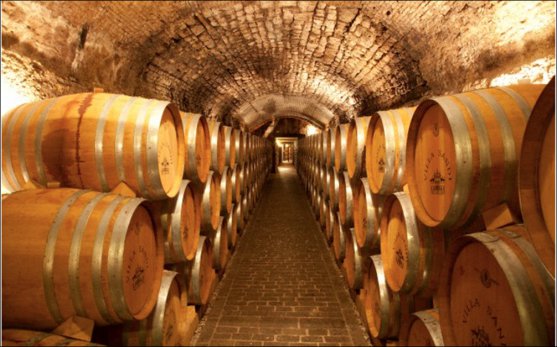
Whenever you feel like it ;-)
The major function of a wine is to be drunk, not to be stored for dozens of years on a shelf until it becomes basically … undrinkable.
It is however true that wine evolves with age and there is a rather large time scale for when it’s “at its finest”.
Just one remark: its ultimate drinking time is not necessarily the same for everyone and if you like young wines then don’t hesitate drinking them young. This certainly won’t do business any harm.
Some wines nevertheless do improve after a few ageing years (more complex aromas, finer tannins, etc …) and certain rules must be respected if you want to fully take advantage:
- Trust the person who sold you the wine, especially if it’s a wine-maker. No one knows better than the wine-maker about the characteristics of his wine, its vintage ageing potential, etc.
- Make sure you have a good wine cellar: the ageing potential won’t be the same in a wine cellar with a constant temperature and with no vibrations than in your cupboards or under your sink,
- Buy at least one case (no, this isn’t just the salesman in me talking!): this will allow you to regularly taste the wine and when you feel it’s ready, then you can drink the remaining bottles.
Last points (more traditional):
- A wine with a rather high alcohol degree (14°C for example) and tannic will age easier than a light and not very structured wine,
- If you wish to buy a bottle with a long ageing potential (for example the birth date of a child), it’s wiser to buy a magnum-size bottle size (1.5L) or a jerobaum (3L): wine evolves better and its presentation will be all that more flattering when you decide to give it as a gift!
Happy tasting … in several years!
Published : 2014-04-15

